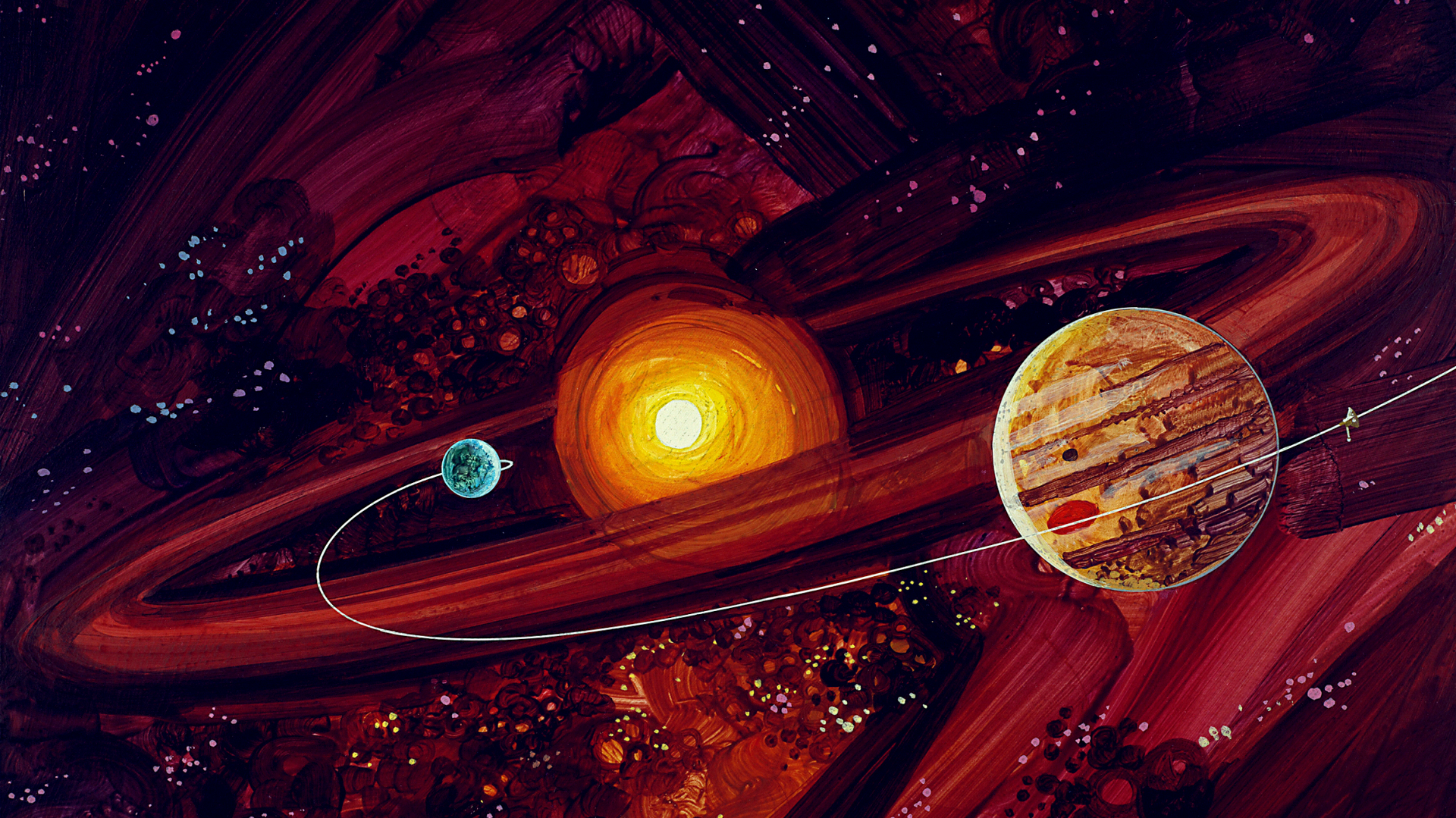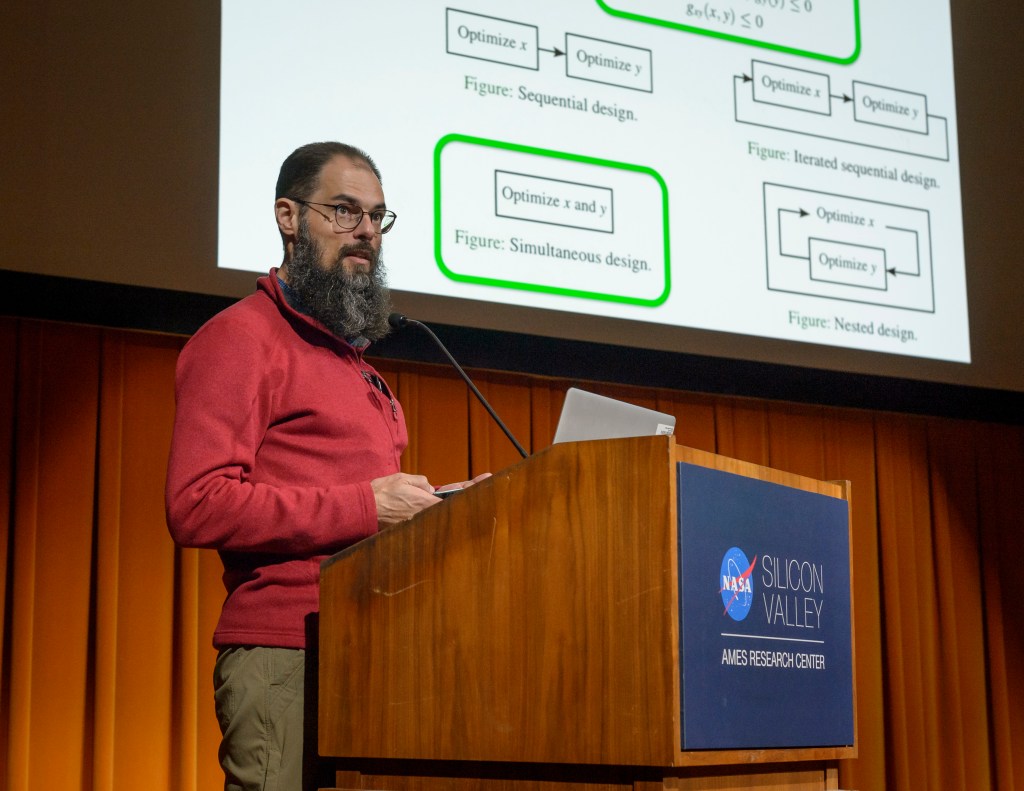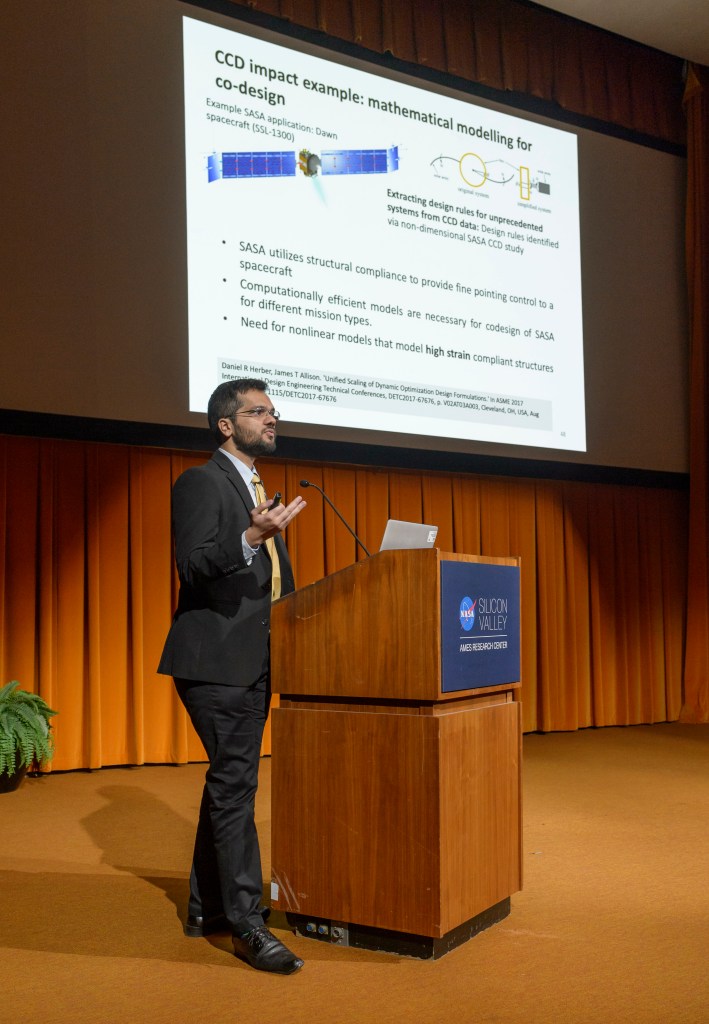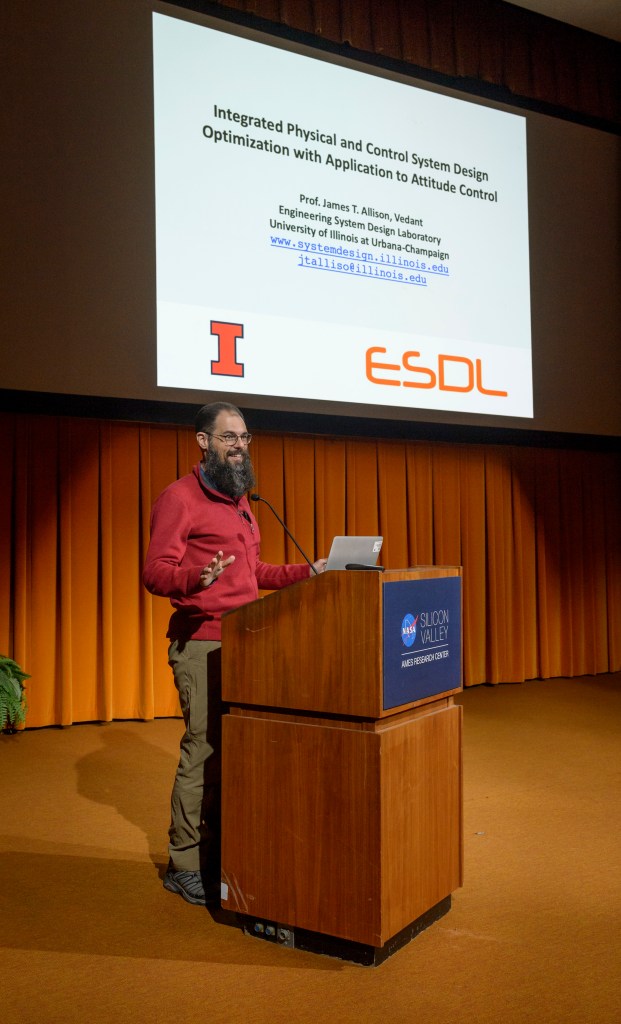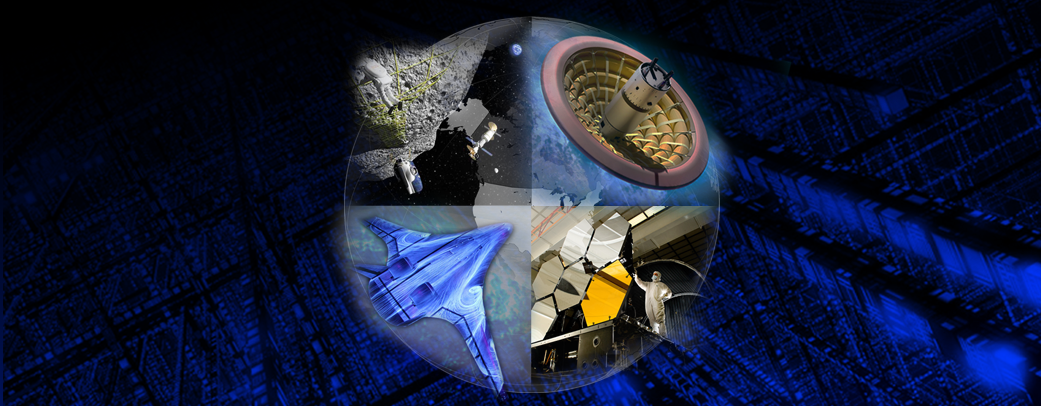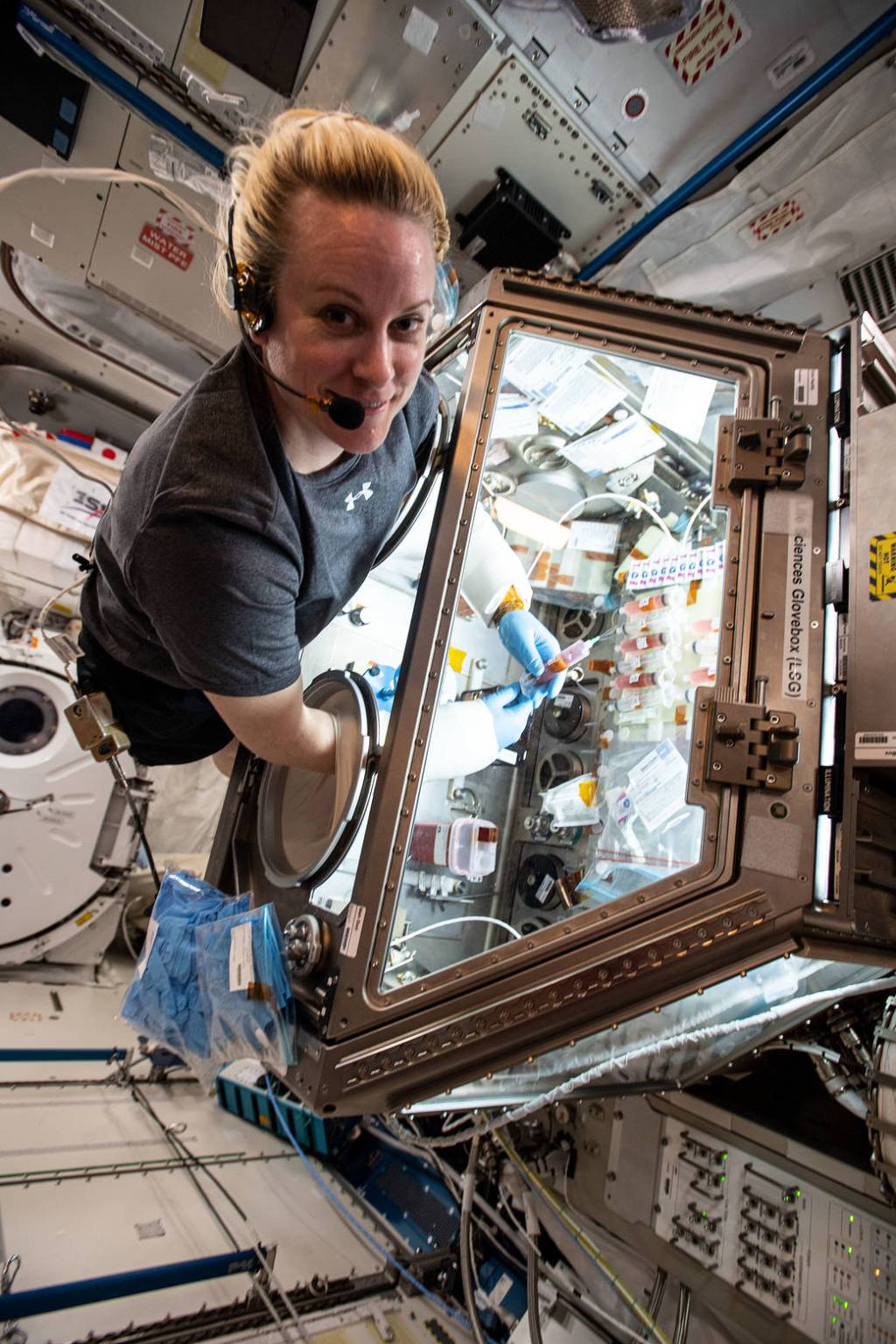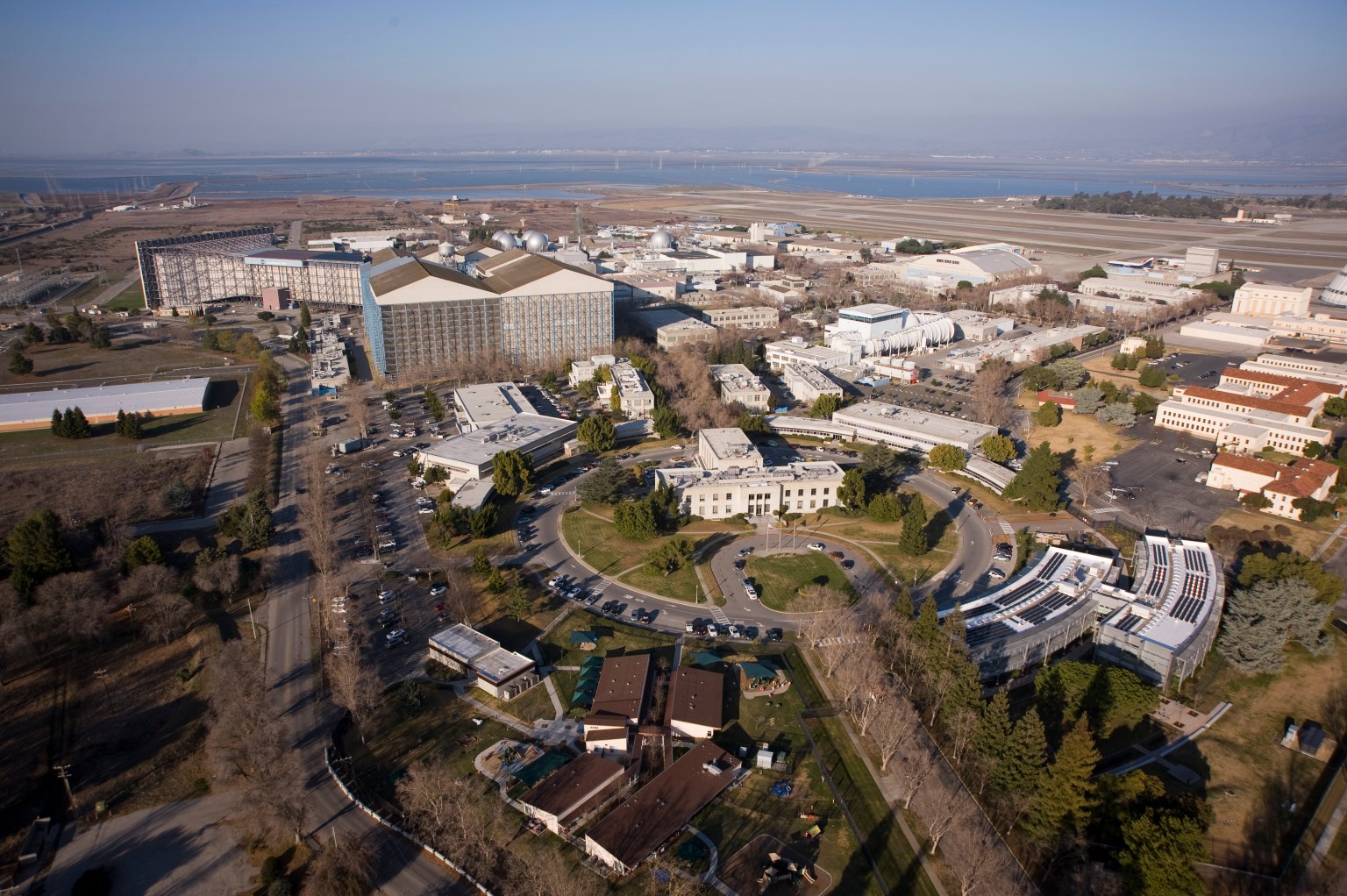James T. Allison and Vedant: Integrated Physical and Control System Design Optimization with Application to Attitude Control
Controlling vehicle orientation is a critical aspect of spacecraft development. However, the current sequential design method is inefficient at fully utilizing all aspects of actively controlled engineering systems. With thousands of artificial satellites currently orbiting the Earth and NASA’s interest in small satellite technology, design efficiency can have a drastic impact on all fields of space exploration. Dr. James T Allison and Mr. Vedant will discuss new methods in control co-design (CCD) and the Multifunctional Structures for Attitude Control (MSAC) extension.
Abstract:
In the development of actively controlled engineering systems, physical system (plant) design decisions influence how associated control systems should be designed to maximize system utility, and control design decisions affect optimal plant design decisions. Conventional sequential design strategies used in practice (i.e., plant design followed by control system design) do not fully-utilize opportunities for performance improvement available due to this design coupling. Control co-design (CCD) methods, in contrast, do capitalize fully on plant-control coupling to achieve system-optimal performance. CCD concepts and specialized CCD optimization strategies, such as earlier efforts involving control-structure interaction, have been applied for some time. Recent advances in CCD have led to more comprehensive theoretical foundations, more generally applicable CCD methods, more comprehensive treatment of physical system design, tools for balancing plant and control design complexity, realization of significant performance improvements, and emergence of non-obvious superior design solutions. A review of key milestones in CCD research will be presented, including recent application of CCD for design of new spacecraft attitude control systems (ACSs) utilizing intelligent structures, termed Multifunctional Structures for Attitude Control (MSAC). MSAC has demonstrated potential for reliable fine pointing control, jitter reduction, and replacement of conventional ACSs with sliding contacts (e.g., reaction wheels). The role of CCD in enabling this new attitude control capability, the discovery of a new strategy enabling large slew maneuvers, and advances involving machine learning-based CCD will be discussed. Other possible applications in astrodynamics and other domains will be identified.
Biographies:
James Allison is an associate professor and the Jerry S. Dobrovolny Faculty Scholar at UIUC. He is a faculty member of the Industrial and Enterprise Systems Engineering and Aerospace Engineering departments and is the director of the UIUC Engineering System Design Laboratory. Prof. Allison holds MS (2004) and Ph.D. (2008) degrees in Mechanical Engineering, and an MS (2005) in Industrial and Operations Engineering, all from the University of Michigan. He also holds a BS in Mechanical Engineering (2003, University of Utah) and an AAS in Automotive Technology (1998, Weber State University). He is the co-author of more than 100 research publications and the recipient of several awards, including the NSF CAREER Award, ASME Design Automation Young Investigator Award, ASME papers of distinction, and several teaching and advising awards. Previous experience includes work in the automotive and engineering software industries. Prof. Allison’s work focuses on the creation and analysis of novel quantitative design methods for engineering systems. Specific topics of study include: integrated physical and control system design, system architecture design, topology optimization, design for additive manufacturing, and material system design. His investigations span a wide range of application domains, including wind energy systems, spacecraft design and attitude control systems, aircraft cooling systems, intelligent structures, vibration isolation and control, multi-scale scramjet design optimization, automotive systems, power electronics, manufacturing and fluid systems.
Vedant is a Ph.D. candidate in the Department of Aerospace Engineering at the University of Illinois at Urbana-Champaign. He received his MS in spacecraft attitude control and systems engineering from the University of Illinois (2018), with a thesis on “Improved qualification and algorithms for IlliniSat-2 attitude determination and control.” His interests are in the field of satellite attitude control, design of new attitude control systems, optimal design and control, machine learning-based control, and space systems engineering. His Ph.D. research concentrates on design and control of unprecedented systems, including development of a novel attitude control actuator with support from the University of Illinois, NASA-JPL and NASA Ames.



























